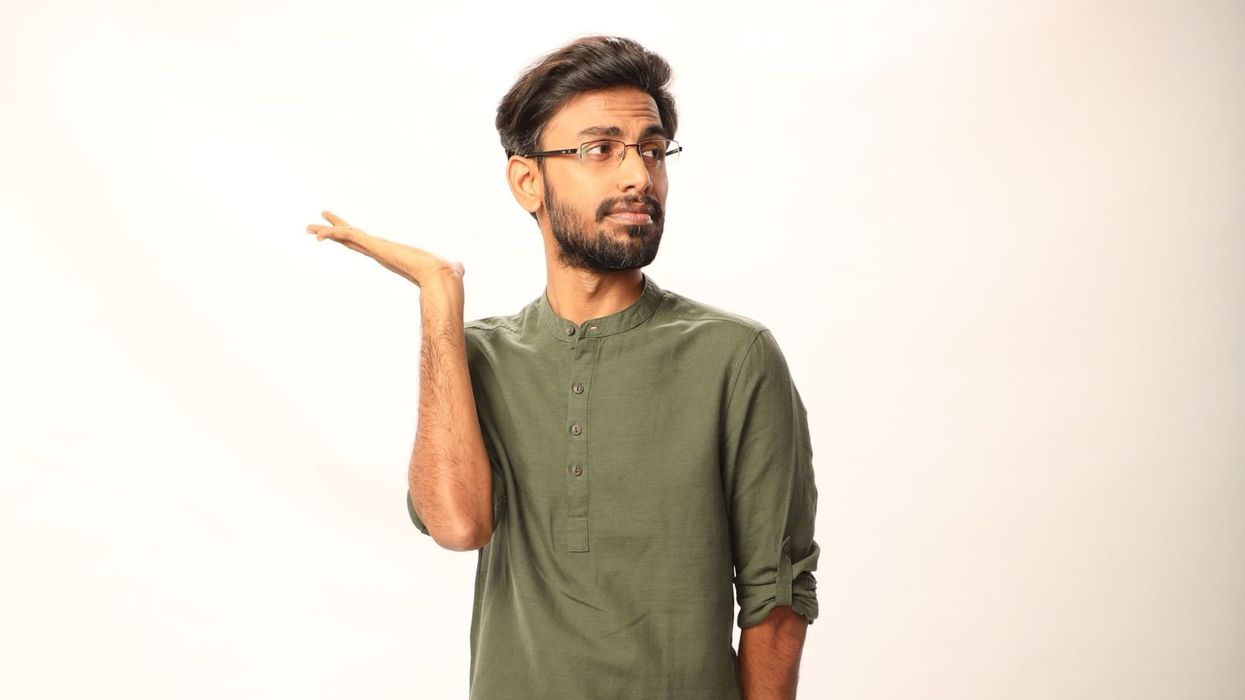EXPLOSIVE Indian talent Biswa Kalyan Rath returns to London’s Soho Theatre with his incendiary brand of stand-up comedy, packed with joke-fuelled bombs.
The confrontational comic from Mumbai delves into topics such as the English language, love, marriage, work, family dynamics, and cross-border curiosity.
Thousands have already experienced his latest show, adding to an impressive journey that has taken him from YouTube stardom to streaming success and performances at sold-out, packed venues around the world.
Eastern Eye caught up with the popular comedian, who has over 465,000 Instagram followers, to talk about comedy, his new show Hinglish & Engdi, being rebellious, his inspirations, and the British habit he has embraced.
What do you love most about stand-up comedy?
Stand-up feels like dining at my favourite restaurant with friends – except here, I get paid. It is my way of venting about life’s absurdities, one joke at a time. The applause is also good to hear.
How does it feel to be back at Soho Theatre with your new show?
I have said this before: Soho Theatre is one of the best venues in the world. It feels like home whenever I perform in London. I look forward to a cosy couple of weeks.
Tell us about your new show, Hinglish & Engdi.
This show has been the most fun I have ever had making a special. It has something for everyone – whether it is my experience with the English language, house hunting in a metro like Mumbai, or navigating government offices.
What inspired the title?
The title is a mix of my bit about South Bombay’s elite and their hip lingo, combined with the search for something amusing.
How does this show compare to your previous stand-up specials?
While I stick to my core style of observational and rant comedy, this show provides deeper insights into my life and experiences over the past few years.
Would you describe yourself as a rebellious comedian?
Rebellious? Me? Absolutely not. I am a staunch defender of the status quo. I love tradition, respect authority, and hate change. I am basically the opposite of a rebel – unless, of course, you consider poking fun at daily life and challenging societal norms rebellious. In that case, I am the most rebellious person you will ever meet.
You have performed a lot in the UK, including at the Edinburgh Fringe. Have you picked up any British habits?
Yes – I have started enjoying queuing. Cheers to that.
Has the UK influenced or inspired your comedy?
Constantly. There are many comedians here to learn from. I have been inspired by people like Stewart Lee, Ricky Gervais, Hugh Laurie, and Stephen Fry.
Has your sense of humour ever gotten you out of trouble?
No. My comedy is strictly reserved for the stage.
How do you usually feel before going on stage?
I feel excited, confident, and energised, ready to give a great performance, connect with the audience, and enjoy every moment onstage.
Is there a message you hope to convey?
If you are trying to navigate life, marriage, and government offices, you cannot really miss this show.
Biswa Kalyan Rath: Hinglish & Engdi at Soho Theatre, 21 Dean Street, London W1D 3NE from Monday, November 4, to Saturday, November 16. www. sohotheatre.com




